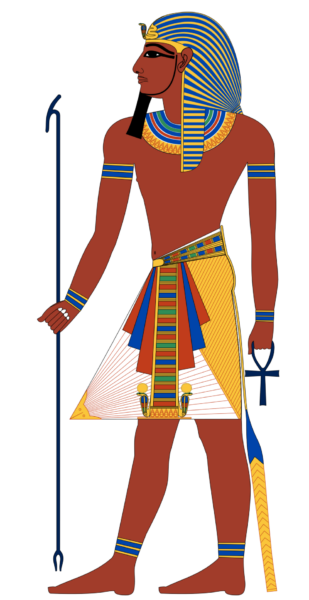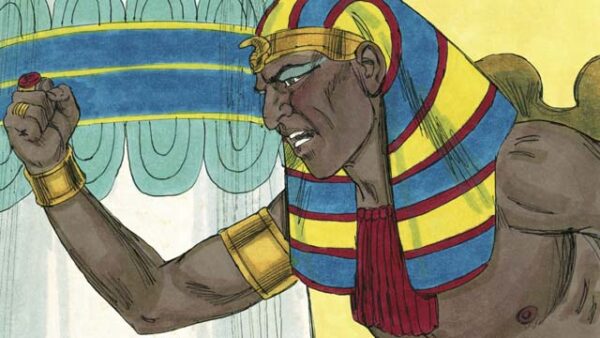 If you’ve followed my blog long, you know I love to share some personalized Bible study insights from time to time. I recently ran across an interesting Old Testament story that I’ve read many times before, but somehow saw it in a whole new light this time around. The two heroines of the story aren’t really new, (they’ve been right there since the Bible was written), but if you’re like me, you might never have noticed them before.
If you’ve followed my blog long, you know I love to share some personalized Bible study insights from time to time. I recently ran across an interesting Old Testament story that I’ve read many times before, but somehow saw it in a whole new light this time around. The two heroines of the story aren’t really new, (they’ve been right there since the Bible was written), but if you’re like me, you might never have noticed them before.
Won’t you grab your Bible and take a gander at the first chapter of Exodus with me? I’d love to hear your thoughts.
Hop down to verse 15, after Joseph (yes, he of the colorful coat) had brought 70 of his peeps (Genesis 46:26) from their famine-ravaged homeland of Canaan to Egypt, where the Almighty had promoted him from a human-trafficked slave to ruler of the nation, second only to Pharoah in power. Years later, after Joseph and the reigning God-respecting Pharoah died, a new king who had no regard for either Yahweh or the burgeoning population of Hebrews/Israelites (seventy eventually grew into thousands of descendants of Abraham, Isaac, and Jacob) took office.
Now read Exodus 1: 15-22, the awesome story where we meet two lesser known heroines of faith, Shiphrah (pronounced Ship-rah) and Puah (Poo-a). I like them already, just from their cool names. (And consider: they must’ve been pretty special gals for the Almighty I AM to make sure their names were recorded in the Bible, when we have so many anonymous (nameless) women cited, like the woman at the well, the woman with the issue of blood, the adulterous woman, the mother-in-law of Simon Peter, etc.)
Shiphrah and Puah served as the leaders of the Hebrew midwives, who apparently had been very busy delivering bundles of joy throughout the Hebrew slave quarters, even though dastardly Pharoah had decided repression and domination was the only way to control the blossoming population of Hebrews. Hard labor must’ve invigorated them because Pharoah was alarmed enough at the population explosion to begin heinously murdering newborn Hebrew babies.
It’s a little confusing as to why Pharoah ordered Shiphrah and Puah to put all the newborn Hebrew boy babies to death instantly upon their arrival at the birthstool (two stones upon which the pregnant women crouched to deliver their babies – aren’t we glad we do it differently nowadays?) but not the girls. Some Bible scholars believe the girls were allowed to live in hopes they would grow up and marry card-carrying Egyptians, folding their offspring nice and nearly into the homeboy (controllable) population.
Regardless, God-serving Shiphrah refused to obey her king’s direct command to kill the boys and Puah probably knitted a pair of blue booties for the next man-child’s arrival. They chose to obey the One True God, their spiritual king, rather than their physical king, knowing they could easily lose their lives by taking a stand. Gutsy, right?
They were truly courageous heroes of faith.
When it came time to pay the piper, our girls had to think fast when summoned by royal Pharoah himself and pointedly asked why there weren’t more baby graves dotting the hillside? I picture Shiphrah and Puah gulping and sweating and quivering as they replied that, well, those darn Hebrew women are so robust and strong – not like the wimpy, pampered Egyptian women – they keep plunking out healthy babies before we can even get there. What’s a girl to do?
 And by the blessings heaped upon our ladies by God (cited in Exodus 1:20), apparently Pharoah bought this heaven-approved message.
And by the blessings heaped upon our ladies by God (cited in Exodus 1:20), apparently Pharoah bought this heaven-approved message.
But then he had a meltdown. He lost control over losing control. Verse 22 implies that he threw up his hands on the murderous midwife scheme and turned to his fellow countrymen (all the Egyptians and Hebrews as well) to take it upon themselves to toss all the newborn baby boys they came across into the crocodile-infested Nile.
And that’s how Baby Moses ended up in the bullrushes – the exact location God orchestrated to begin preparing him to become the rescuer of Shiphrah and Puah, and the deliverer of the entire Hebrew population.
So what do you think about our gals Shiphrah and Puah, dear BFFs? Have you ever noticed/studied/contemplated their role in the ancestry of the Christian faith before? Do you find it as inspirational as I do that two little seemingly powerless women at the bottom of the social order of their community would stand strong (and maybe a wee bit sassy) against the steel-bound orders of their own oppressive government?
Do you find any parallels with our current global situation? How might the example of Puah and Shiphrah enlighten and empower us today? I’d love to hear from you in the comments!


I actually read about these brave females last week. I asked God to make me bold and courageous like them. They put their trust into God and His Kingdom. They were not concerned about the Pharoah, but they feared God. I asked that God make me fearful in HIM, not in any governmental leader. I admire Puah and Shiphrah. I hope to be as courageous as them.
Wow!!! God is amazing!!!!
Hey Julie – what great timing we have! Can’t believe you just focused on Puah and Shiphrah last week. I think Papa God wants us to learn exactly what you expressed from them. Thanks so much for taking the time to comment, sister. Hugs!
I became “familiar” with these two when I saw a skit at Presbyterian Women {PCUSA} Churchwide Gathering in Louisville, KY in 2009
Keep up the good work, Deborah ! GOD Bless YOU.
Thanks so much, Gayle. I love learning about “new” old Bible characters that have been right under my nose for decades, don’t you? Hugs!
As someone who works in a pregnancy center, these ladies have a very special place in my heart. Good reminder to not allow the fear of man to keep us from being a voice for the voiceless. Thank you, sister.
Bless YOU, Patricia, and all the other faithful in the pregnancy center ministry. Your crown will be so bejeweled in heaven that you’ll have to brace your neck to hold up your head! Hugs!